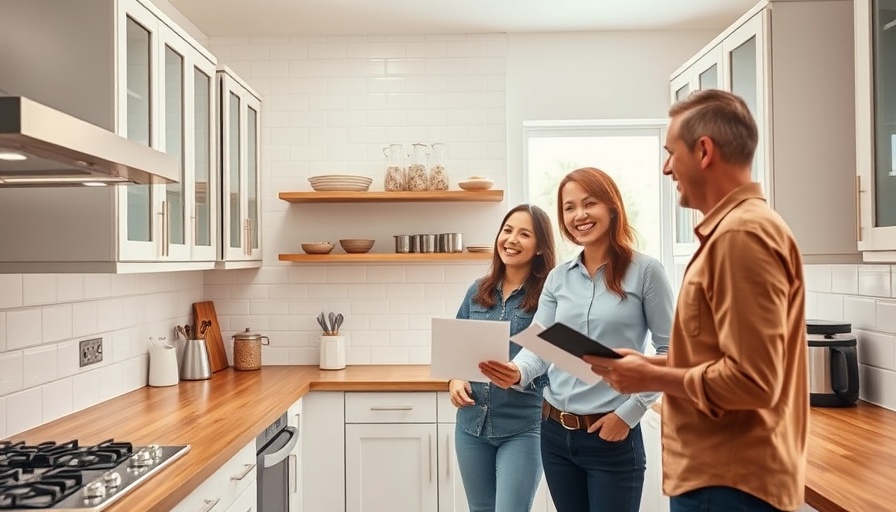
Understanding Home Staging: What It Is and Why It Matters
As anyone in the real estate market knows, first impressions count. Home staging is the strategy of preparing a house for sale with the intent to attract potential buyers by presenting the property in its best possible light. This entails cleaning, decluttering, arranging furniture, and adding decorative elements that appeal broadly to buyers. The goal is to create an inviting environment that allows potential homeowners to envision themselves living in the space.
Does Staging Actually Increase Home Value?
The question on every seller's mind is whether staging can inflate their property’s market value. While the answer isn’t a resounding yes, staging can enhance the perceived value, often justified by presenting the home as move-in ready. It helps mitigate lowball offers, as a well-staged home invites emotional connections. As the National Association of Realtors indicates, staged homes tend to list impressively, reducing time on market significantly.
Accelerating Sales: How Staging Helps!
Interestingly, properties that are staged tend to sell faster compared to their unstaged counterparts. With well-curated spaces captivating potential buyers, the time spent on the market can decrease considerably. This is particularly vital in competitive real estate environments, where prospective buyers often make quick decisions. Statistics show that 31% of sellers' agents observed that staging led to shorter selling times, making it a strategic move for sellers.
Market Variability: When Is Staging Worth It?
The effectiveness of staging can vary greatly depending on regional real estate trends and buyer demands. In hotter markets, buyers may have higher expectations, making staging a worthwhile investment. On the contrary, in less competitive regions, sellers might still benefit from cleanliness and organization rather than professional staging. Understanding local dynamics through real estate websites like Zillow or Trulia can help sellers assess whether staging is essential.
The DIY Route vs. Professional Staging: What's Best?
Sellers often grapple with whether to hire professional stagers or to handle the staging themselves. DIY staging can save money, yet it may lack the professional touch that can make a captivated space stand out. Hiring a real estate consultant can provide valuable insights on professional staging options, with the potential for significant returns on the investment. However, clear communication with a real estate agent about goals is crucial to making this decision.
Maximizing Your Staging Strategy: Tips & Tricks
For those considering staging, here are actionable insights to maximize the impact:
- Focus on Key Spaces: Prioritize important areas like living rooms and kitchens where buyers often spend most time.
- Neutral Décor Works: Stick to neutral colors that allow buyers to visualize their own styles in the home.
- Declutter & Depersonalize: Ensure spaces are clean and devoid of personal memorabilia that may hinder buyers from envisioning their lives in the home.
- Enhance Curb Appeal: Don’t overlook the exterior; first impressions begin at the door.
Conclusion: The Path Forward
Staging is an essential tool in the real estate selling process that helps homes not only attract buyers more successfully but also potentially increase selling prices. Whether leveraging professional staging or opting for a DIY approach requires careful consideration based on local market insights. For those embarking on the home selling journey, integrating home staging can set the stage for success!
Are you looking to sell your house or find the perfect home? Connect with a reputable real estate agent today who can guide you through this vital process. Don’t let your home linger on the market; do what it takes to attract buyers and make your selling experience seamless!
 Add Row
Add Row  Add
Add 




Write A Comment